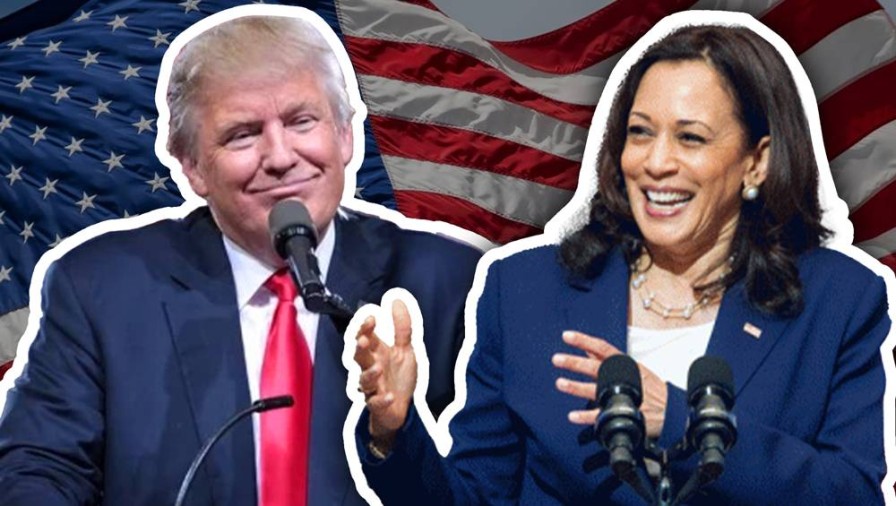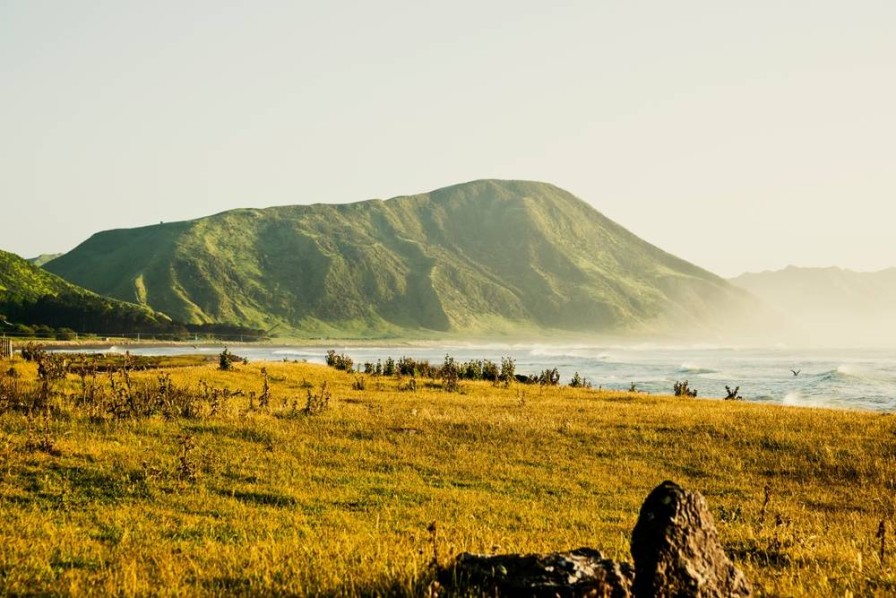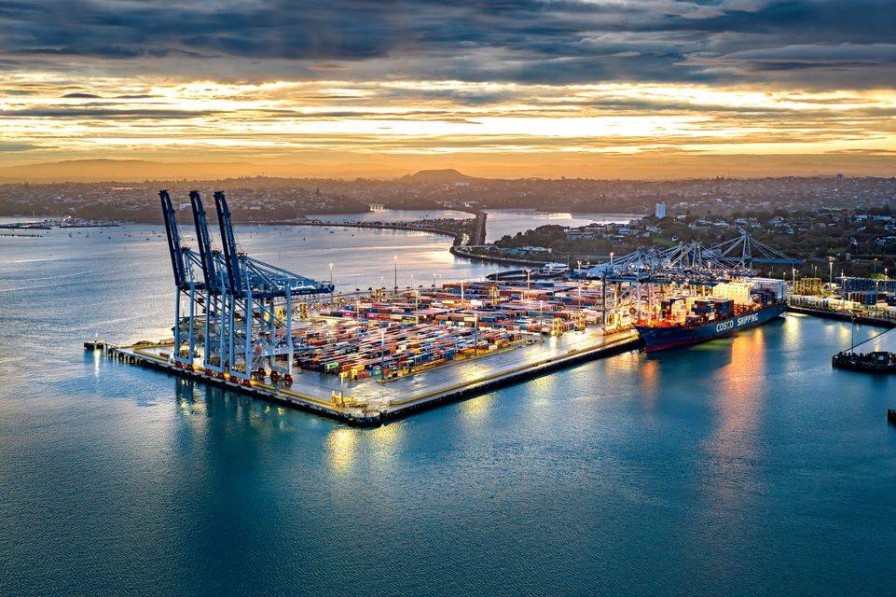

American politics, iwi fears, workplace safety and a trade deal
ANALYSIS: Divisions grow over Government's amendment to the Marine and Coastal Areas Act.
NBR political editor Brent Edwards speaks with Simon Shepherd.


ANALYSIS: Divisions grow over Government's amendment to the Marine and Coastal Areas Act.
NBR political editor Brent Edwards speaks with Simon Shepherd.
In what was a relatively quiet political week at home it was no surprise most interest focused on the presidential election in the United States.
With less than a week to go, polls in the US suggest both Republican nominee Donald Trump and Democrat nominee Kamala Harris are running neck and neck. Much will depend on which candidate can win enough votes in swing states to tip the Electoral College their way.
The outcome could have significant consequences for New Zealand. If Trump wins and proceeds with his plan to introduce 20% tariffs it is likely this country’s burgeoning trade with the United States – it is New Zealand’s second largest export market after China – would be negatively affected.
While New Zealand does not have a free trade deal with the US some products still get into the country tariff-free or at tariff rates lower than a Trump administration is proposing. If the proposal then provokes a tit-for-tat trade global trade war, New Zealand – as a small trading nation – will be caught in the crossfire.
Defence experts also suggest that the US under Trump’s leadership would put more pressure on its allies and friends, including New Zealand, to lift their spending on defence and play a bigger role.
That is not to say a Harris administration would be too much easier. Protectionist tendencies in the US are not just confined to the Republican Party, but it seems likely a Harris administration would be less likely to impose the sorts of tariffs proposed by Trump.
But the Government here would continue to come under pressure to back the US in its increasing confrontation with China and will continue to be pushed on the idea of joining pillar 2 of the Aukus agreement. That might have implications for trade with China if New Zealand is viewed as taking a more antagonistic approach to its largest export market.
So, next week there will be plenty of interest as the results of the election emerge on Wednesday New Zealand time, although if the polls are right, it might take a day or two to know who will be moving into the White House in January.

Who will be the next president of the United States?
One element of the election campaign has been to again confirm how divided American politics and society is.
Here in New Zealand some of our domestic division showed up this week as submitters made oral submissions on the Marine and Coastal Areas (Takutai Moana) (Customary Marine Title) Amendment Bill. Iwi after iwi condemned the legislation, as did many others, but groups like Hobson’s Pledge and the Port Company CEO Group supported it.
The Government has introduced the legislation in response to a Court of Appeal decision in Re Edwards. It believes the courts are not interpreting the original Marine and Coastal Areas Act in the way Parliament meant when it passed the law in 2011 because the courts had “materially reduced” the threshold of exclusive and uninterrupted use which claimants had to prove to get customary marine title (CMT).
Te Kotahitanga o Te Atiawa chief executive Dion Tuuta said the amendment bill would create more uncertainty and simply reinforced on iwi the confiscation of land they suffered in the 19th century.
“It is very difficult to talk about this in isolation from a myriad of other things going on because it is very much a message [to Māori] to get back in your box from this Government,” Tuuta told the Justice Select Committee.
Te Runanga o Ngāti Whatua chief executive Alan Riwaka said it was the worst legislation he had seen in his working life and was racist.
“We are all expected to just roll over and be good Māori,” Riwaka said.

There seems little likelihood of compromise over customary rights to the foreshore and seabed.
A trustee of the Raukawa ki te Tonga Trust Emma Winiata said her iwi would be clearly disadvantaged by the bill as it was near the end of its legal process in seeking CMT.
“It is another factor that will add to our mistrust of the Government and the uprising of Māori across the country,” Winiata said.
It was a common refrain from Māori submitters as they referenced the hikoi coming to Parliament later in November.
But Port Company CEO Group spokesperson Charles Finny had a different view, saying the ports had been given an assurance in 2011 that their rights and interests would be protected by the original legislation. But the courts had interpreted it in a way the port companies had not anticipated, and which was inconsistent with the assurance they had been given.
Despite the multitude of submissions against the bill it is difficult to see the Government backing down, given it is a commitment made as part of the coalition deal between National and New Zealand First. Compromise seems unlikely.

Port companies support the Government's amendment bill.
There is, however, plenty of compromise – among employers and unions at least – when it comes to the workplace health and safety regime.
This week business groups – including BusinessNZ – signed a joint letter with the Council of Trade Unions to Workplace Relations and Safety Minister Brooke van Velden recommending the Government consider better system leadership and coordination, invest more in WorkSafe and have better regulations and guidance.
Just a few days later a group of 61 businesses released their joint submission on the review of health and safety in which they said the Health and Safety at Work Act 2015 was fit for purpose. Rather than reforming the law, they wanted the system improved, including focusing on improving the competency and capability of inspectors employed by WorkSafe.
CTU president Richard Wagstaff is pleased employers shared the unions’ concerns but he is not confident van Velden and the Government will change course.
“Any form of regulation is an anathema to her. Any efficient regulator is an anathema to her and her party’s instincts. That is why they want to dismantle it,” Wagstaff says.
So, consensus might only go so far.
Even though it has little interest in what the unions say, will the Government ignore those businesses urging it to beef up the existing system?

Workplace Relations and Safety Minister Brooke van Velden.
And talking of beef, meat exporters got some good news at the end of the week with the announcement that New Zealand and the Gulf Cooperation Council have finally reached a deal on a free trade agreement. It comes 18 years after negotiations began and will remove tariffs on 99% of New Zealand’s exports to the region over the next 10 years.
New Zealand exported $2.6 billion to the GCC – which includes Bahrain, Kuwait, Oman, Qatar, Saudi Arabia and the United Arab Emirates – in the year to the end of June, including $1.8b of dairy products and $260 million of red meat.
“This is the highest quality deal the GCC has done to date and its first with a major agricultural exporter,” Trade Minister Todd McClay says.
Next week Parliament resumes sitting and will consider the second readings of some contentious pieces of legislation. These include: the Crown Minerals Amendment Bill, which repeals the ban on offshore oil and gas exploration; the Climate Change Response (Emissions Trading Scheme Agricultural Obligations) Amendment Bill, which removes agriculture from the ETS; and the Smokefree Environments and Regulated Products Amendment Bill (No 2), which is aimed at reducing the harm of vaping.
The first two bills face strong opposition from those who argue they weaken New Zealand’s efforts to cut greenhouse gas emissions, while both the Labour and Green parties say the vaping legislation does not go far enough to reduce harm.
Beehive Banter is hosted by Simon Shepherd, with NBR’s political editor Brent Edwards.
Sign up to get the latest stories and insights delivered to your inbox – free, every day.